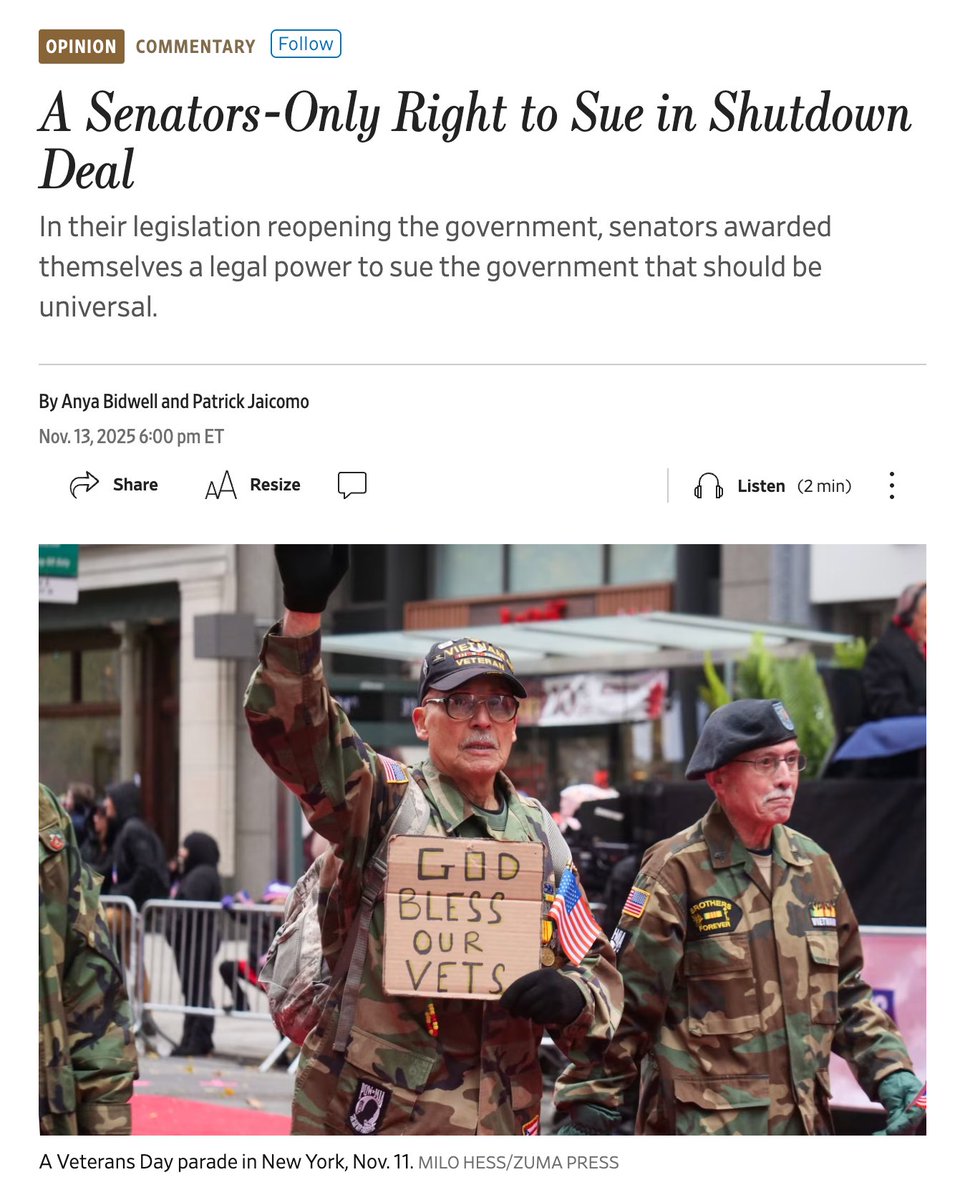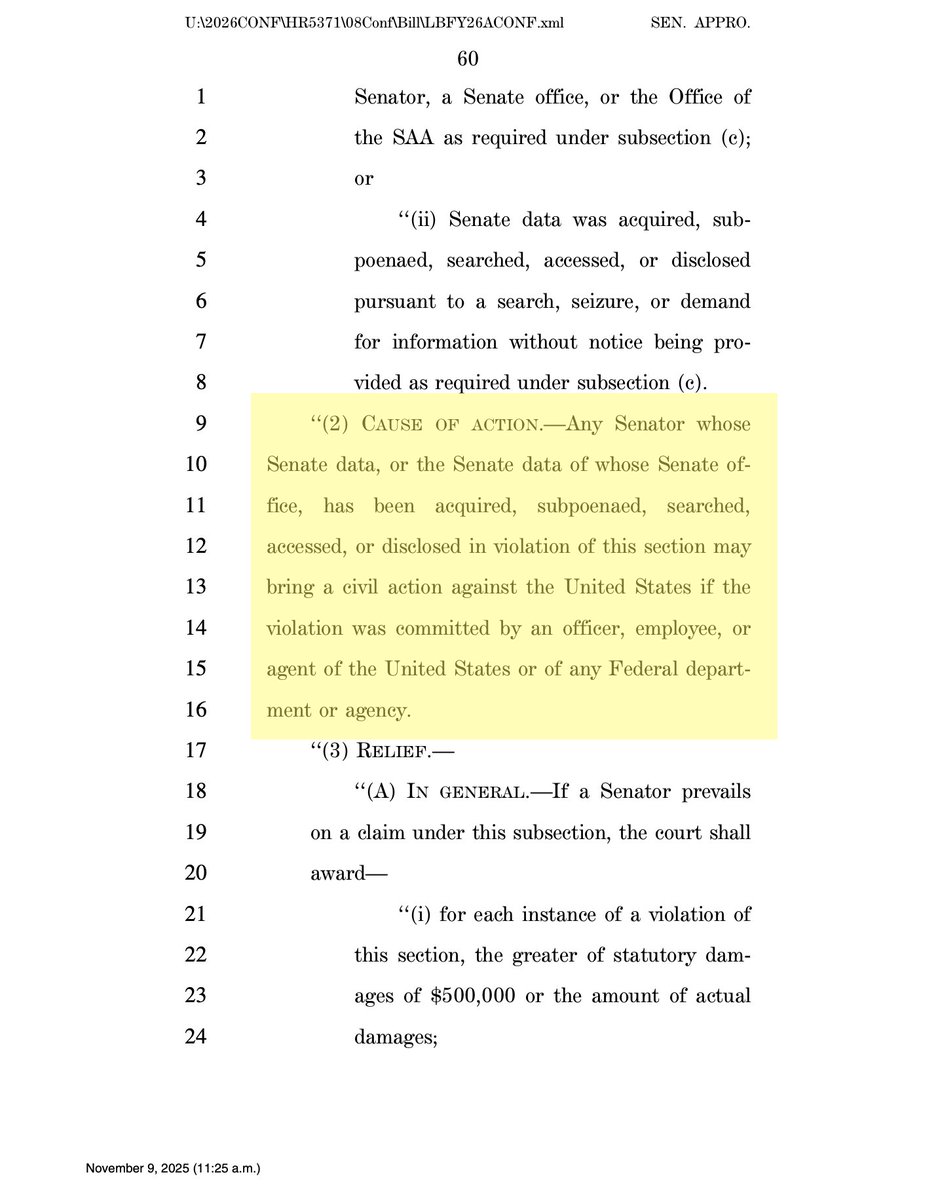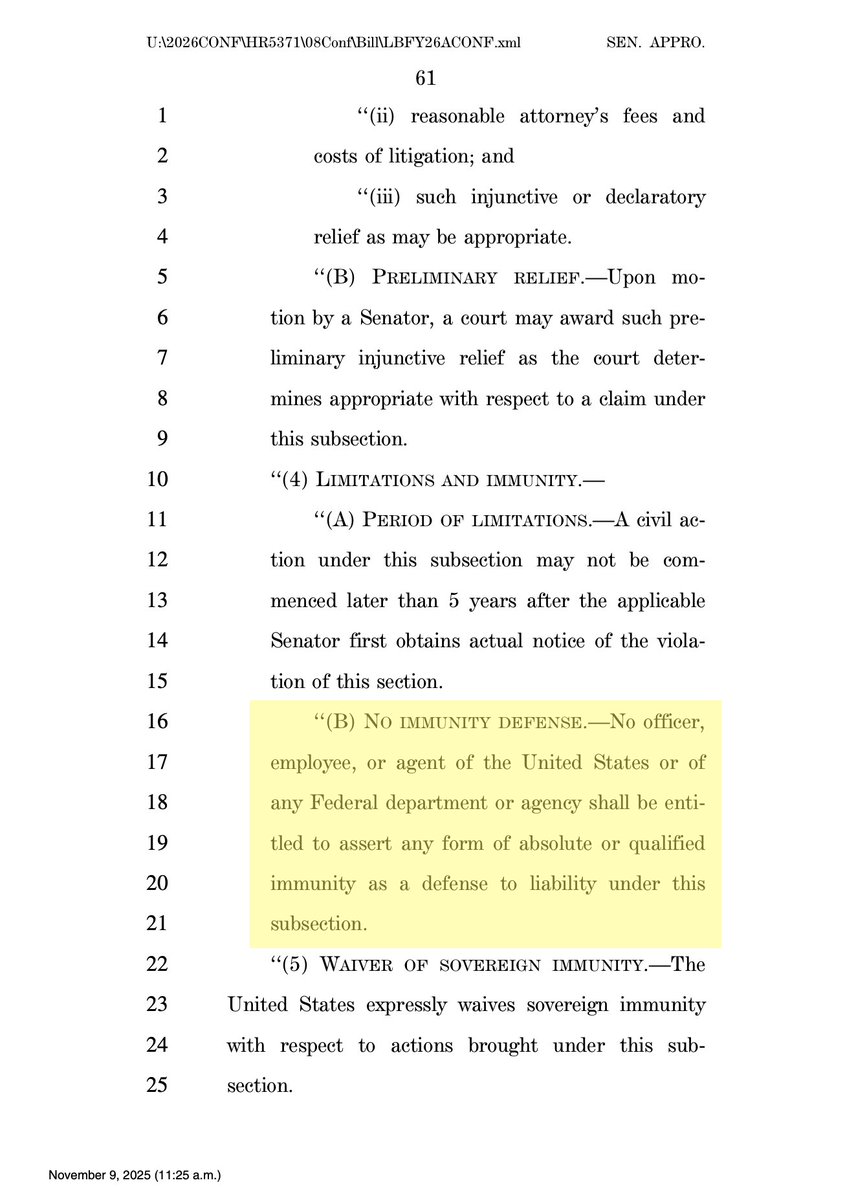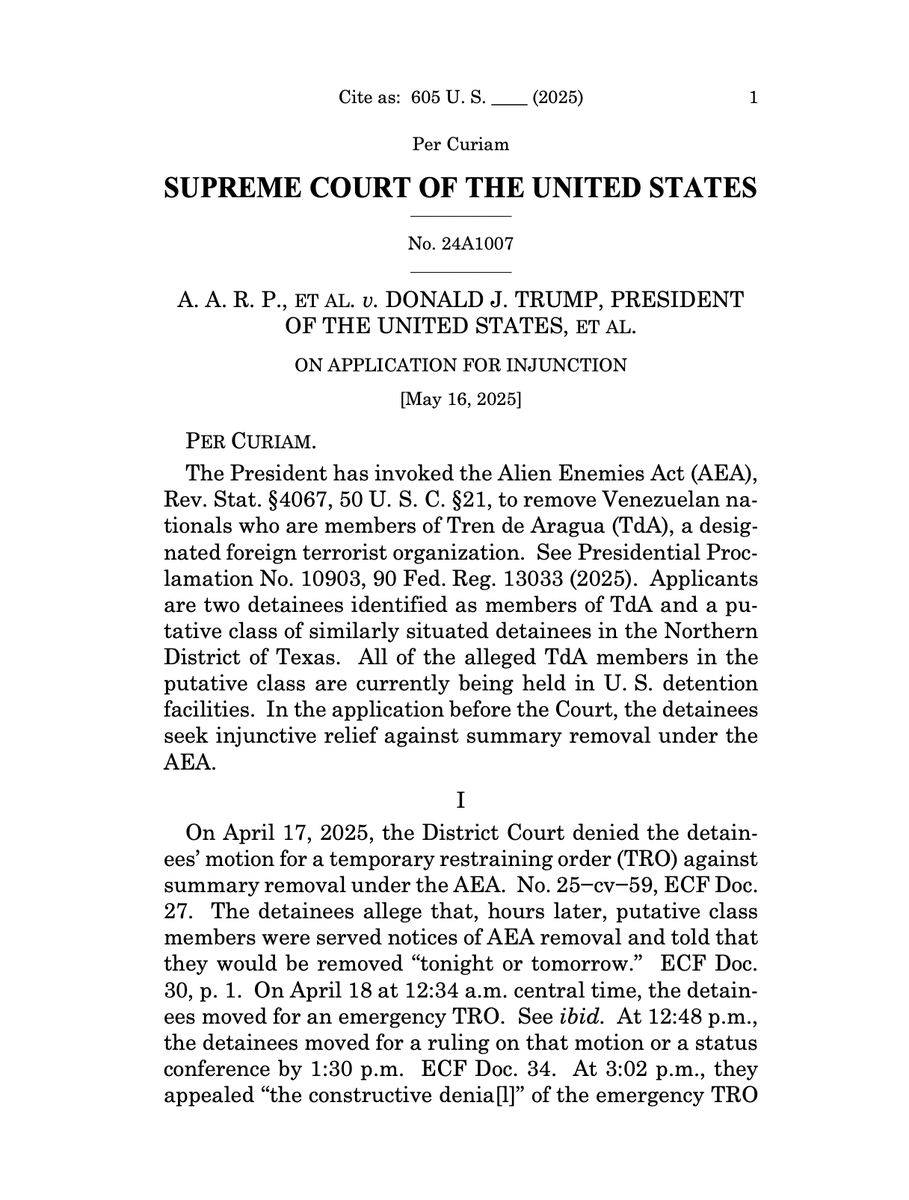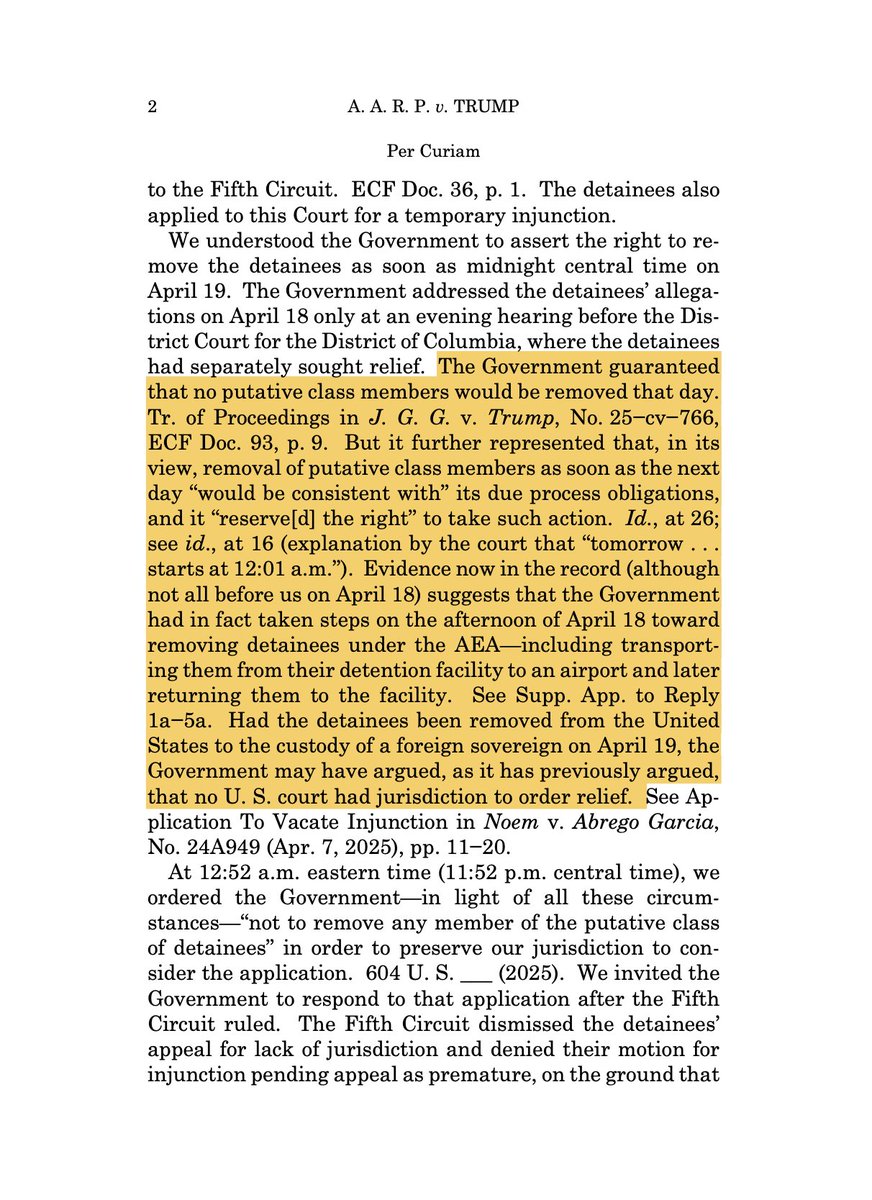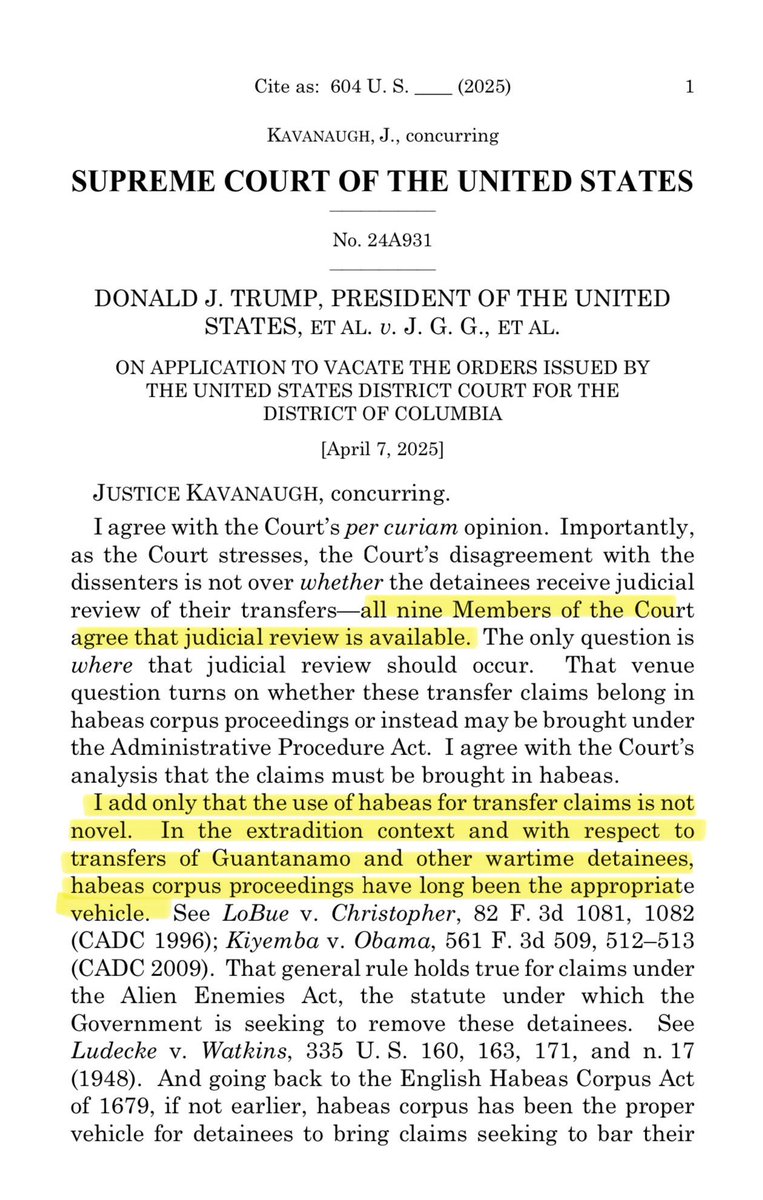🧵More on Egbert v. Boule, #FederalImmunity, #PoliceAccountability: @IJ has 2 petitions pending on a similar issue involving *domestic* federal policing: Mohamud v. Weyker & Byrd v. Lamb. SCOTUS has been holding those cases *since Jan.* pending Egbert. 1/
ij.org/case/federal-p…
ij.org/case/federal-p…
We expect the Court will soon issue orders in Mohamud and Byrd (perhaps Monday), and what it does with them will be telling about what - if anything - is left of Bivens. If you want a little more on our cases, I have talked about them here: 2/
https://twitter.com/pjaicomo/status/1439218647067734018?s=20&t=nWDwtwBGUd4lNjqfO177xw
Big picture, Egbert is the latest in the Court's death-by-1000-cuts approach to klling Bivens (w/o having to confront stare decisis or public outrage). What Egbert holds is that federal police *involved in immigration related functions* (about half) now have #FederalImmunity. 3/ 
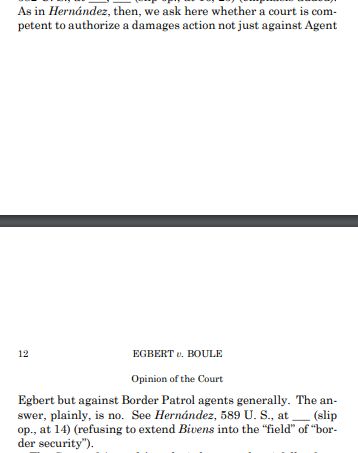
But the major distinction between Egbert and @IJ's cases is that Egbert involved immigration related policing and our cases involve *domestic* policing. See, e.g., Egbert's QPs (note #3 was NOT granted, so theoretically, the Court was adamantly not overruling Bivens). 4/ 

Indeed, at oral argument in Egbert, the SG used this as a major point of leverage for how the CPB could win in Egbert w/o SCOTUS overturning Bivens. We explained this in detail in @IJ's supplemental briefs in Mohamud and Byrd: 5/
supremecourt.gov/DocketPDF/21/2…
supremecourt.gov/DocketPDF/21/2…
supremecourt.gov/DocketPDF/21/2…
supremecourt.gov/DocketPDF/21/2…

So, if SCOTUS GVRs Byrd and Mohamud because they involve domestic federal policing, there might be something left alive in Bivens. But if SCOTUS simply denies, boy, that sure seems like #FederalImmunity is now absolute, Bivens is done, and . . . 6/
supremecourt.gov/DocketPDF/21/2…

supremecourt.gov/DocketPDF/21/2…


Even Marbury v. Madison is called into question. Because that ruling established (1) judicial review, (2) that the constitutional is an enforceable legal document (not a political one), and (3) that every right must have a remedy. #FederalImmunity kills all 3. /7 





In response to Egbert, we filed another supplemental brief in Byrd today, arguing that Bivens is not dead (and should not be) but, if it is, the Court should have the courage to say what it's doing (which is a point Gorsuch made in his concurrence): /8
supremecourt.gov/DocketPDF/21/2…
supremecourt.gov/DocketPDF/21/2…

Related: As a matter of basic constitutional design, the courts don't need a permission slip from Congress to enforce the constitution. But even if they did, Congress provided one in the Westfall Act. /9 

And even if that's not right, Congress could (and now must) solve the #FederalImmunity problem by adding FOUR DAMN WORDS to Section 1983: /10
congress.gov/bill/117th-con…
congress.gov/bill/117th-con…

I'll be sure to let you know what happens and, as a result, what is left of federal #PoliceAccountability. Stay tuned. 11/
PS @IJ litigates #FederalImmunity, in addition to #QualifiedImmunity and other doctrines that thwart the Constitution, through our Project on Immunity and Accountability. Find out more and support us here:
/END
ij.org/issues/project…
/END
ij.org/issues/project…
• • •
Missing some Tweet in this thread? You can try to
force a refresh


